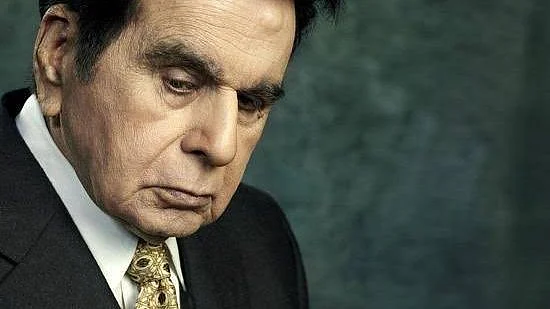Along with his conquests in the world of films, it is important to remember and celebrate the connoisseur of arts and languages that Dilip Kumar was.
Born to a Urdu-Pashto-speaking family in Qissa Khawani Bazaar of Peshawar in what is now Pakistan, he was proficient in many languages. He was a voracious reader of literature in Urdu, Persian, and English. His romance with languages, especially Urdu, has unknowingly changed the landscape of dialogue and music in Indian cinema.
Recalling his first encounter with Dilip Kumar, the late Tom Alter, who was then a fresh graduate from the Film and Television Institute of India (FTII) in Pune, had asked him, “What is the secret to great acting?” Dilip Kumar replied, “Sher-o-Shayari”. Puzzled with the answer for decades, Alter found its meaning in years of learning Urdu and poetry from Dilip Kumar’s khandaani ustaad. Alter even went on to author his memoir in Urdu.
Poetry was always a fundamental part of Dilip Kumar’s life that nurtured his art too. His tremendous love for music was palpable with his flair and knowledge in the medium as well. Saira Banu expressed in the late actor’s biography, "Our home has resounded with the music of maestros from the classical dimension." From Ustad Bade Ghulam Ali Khan and Ustad Vilayat Khan to Mehdi Hassan — he remained an avid aesthete of music. When visiting England for the centenary of the demise of the great Urdu poet Mirza Ghalib, documented by BBC, he is seen brilliantly performing a euphonious rendition of a ghazal. He also sang the classical composition of Laagi Nahi Chhoote with the remarkable Lata Mangeshkar in Musafir (1957).
Mangeshkar, too, had a rather amusing rendezvous with the thespian. In her biography — 'Lata Mangeshkar: In Her Own Voice' — she revealed that her first meeting with the actor was in a train compartment while travelling along with music director Anil Biswas. Upon learning from Biswas that she was a Maharashtrian and a singer, the actor said, "But their Urdu pronunciation isn't correct and in their singing you can smell daal-bhaat," implying the influence of a Marathi accent. Although disheartened, she made it a mission to learn Urdu. Eventually, her great work received massive praise for the songs that had Urdu lyrics. She did, in some part, owe her elan in Urdu to Dilip Kumar. But such was the meticulous precision he always aimed to achieve in his work.
The 'tragedy king' believed Urdu to be a means for an artist to absorb art and literature in all their glorious aspects. He self admittedly drew his reflections on society and culture from Urdu and poetry. It was musical, to hear him speak. The measured pauses and honest panache were nothing but poetic.
Speaking about Dilip Kumar’s affinity towards Urdu, filmmaker and poet Gulzar told us, “Unki Urdu bahut khoobsurat thi, Urdu ka talafuz bahut sahi tha. He came from a family that traditionally spoke Urdu in day-to-day life, either Urdu or Pashto, which is also a very beautiful language.”
He further added, “Dilip saab ki zabaan hamare culture ki zabaan hai, Indian cinema ki zabaan bhi toh Urdu hai.”
Javed Akhtar, among many others, professed his admiration and respect for Dilip Kumar on multiple occasions. He described Kumar as the first method actor that the world had seen. “The influence that Dilip Kumar has had on our society is very profound, more than people can recognise. Our actors, even today, draw from his ways of performing. Many of them don't know that they have learned it from him."
Calling him the Panini (the Sanskrit scholar and grammarian) of Hindi film acting, especially where the influence of Urdu was concerned, Akhtar affirms that the late actor created generations of actors inspired by his language and colour. He developed a syntax of acting that has followed through history. His delivery as an actor has also unknowingly had an impact on writers and how they construct scenes. The incredible ease he had with Urdu made it more accessible as a language of the screen.
"If they turn the pages of their mental dictionary and look for that word called dignity, they will find only one meaning – Dilip Kumar," Akhtar said.
Dilip Kumar was honoured with the Padma Bhushan in 1991, the Dadasaheb Phalke Award in 1994, and Pakistan's highest civilian award Nishan-e-Imtiaz in 1998, for his contributions towards Indian cinema. His craft leapt and cut across geographical borders, and his acclaim transcended the subcontinent. He represents the power of art and the union on two different languages, communities and cultures. Rightly put by Javed Akhtar, “his greatness is still dawning upon him”.
The institution that Dilip Kumar has been and will continue to be, is by all means — the formidable substance and the eternal shadow.
